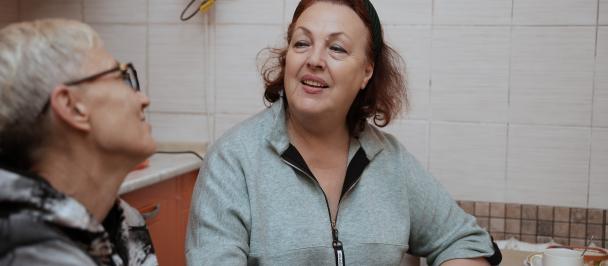International conference in Botswana to discuss most pressing issues
A decade of transformation for land locked developing countries
November 12, 2024

Climate change is profoundly affecting Botswana. UNDP works with the Kgalagadi Gantsi Drylands Ecosystem Project, which guides the sustainable management of natural resources.
Being landlocked is a significant obstacle for development. Landlocked Developing Countries (LLDCs), lacking direct access to the sea, and face isolation from global markets as well as high trade and transport costs. These inherent disadvantages—often compounded by weak infrastructure connectivity for transit and transport, inefficient customs operations, and over-dependence on exports of primary commodities—dampen LLDCs’ competitiveness and hinder their effective integration into the global trading system.
The Third UN Conference on Landlocked Developing Countries (LLDC3) is being held 10-13 December 2024 in Gaborone, Botswana.
It’s critically important, timely, and—with elections scheduled this year in a third of LLDCs—opportune for implementing policy and regulatory reform ideas that will emerge, given the traditional window of opportunity for reforms in the first year of tenure for new governments. But this conference is about more than optimizing policies in individual LLDCs. It also enables them to formulate approaches that benefit them all, helping them to make the most of opportunities.
Key among those opportunities is the African Continental Free Trade Area for African landlocked countries. Trade is a particularly salient issue in Botswana, which has a highly undiversified economy, as well as very high youth unemployment. Re-shaping the narrative from landlocked to land-linked, and developing value chains that enable scaling of productive activities by accessing a vastly larger market than any individual LLDC can offer can bring immense benefits. Botswana can rely on its central location in the Southern African Development Community region and become a perfect gateway to the region if it implements policies that are conducive to trade and investment.
Climate change is another key issue profoundly affecting Botswana and most LLDCs and giving rise to two important sources of inequality. First, LLDCs' share of the adverse implications of climate change is markedly higher than their share in causing it. Second, delays in mitigating and adapting to the effects of climate change have a highly adverse impact on intergenerational equity. A topic in the joint interest of LLDCs that LLDC3 could usefully take up is early coordinated action to avoid such delays.
Another vulnerability is the high debt burden of several LLDCs. While the external debt stock is a relatively manageable 52 percent of GDP on average, 13 LLDCs are highly indebted and ten are in debt distress, or at high risk of it.
Agriculture remains pivotal to the economies of LLDCs, accounting for about 17 percent of their GDP. However, the sector grapples with low productivity, vulnerability, high informality, and limited value addition. There are several contributing factors to this. About 54 percent of LLDCs’ land is dryland and 60 percent of their population is located there (the largest population living in drylands is found in the Sahel region). LLDCs face the common challenge of land degradation, are among the most water-stressed countries, and face recurrent droughts and continuing desertification. These factors undermine agricultural activities, affecting food security, productivity, livelihoods, and the economy.
The new Gaborone Programme of Action already agreed by Member States will be adopted at the LLDC3, with the following main priorities:
- Supporting LLDCs in structural economic transformation, economic diversification, developing productive capacities, innovation and technology transfer
- Trade, trade facilitation and regional integration
- Transit, transport and connectivity, including digital connectivity and energy
- Enhancing adaptive capacity and resilience, including disaster risk reduction, and reducing vulnerability
UNDP, with offices in all 32 LLDCs, is a key partner. The global Supplier Development Programme focuses on small business’s productive capacity, improved competitiveness, and connecting them to larger markets to foster structural economic transformation in places such as Botswana and Moldova. Aid for Trade in Central Asia promotes green value chains, building resilient economic structures through economic diversification, e-commerce and regional economic cooperation. Technical and institutional support is provided to Lesotho and South Sudan under the Enhanced Integrated Framework to foster trade integration. Finally, UNDP is supporting the Africa region with energy projects in over 26 countries, including, the Solar for Health initiative, and the Italy-UNDP Energy Partnership in Rwanda, Comoros, Eswatini, Nigeria, Zambia, and Kenya.
Botswana and the UN are proud to host LLDC3 in Gaborone and are looking forward to welcoming over 2,500 delegates and organizing a conference that brings thoughtful discussions, generates innovative ideas and contributes to boosting development in the world’s 32 landlocked developing countries.

 Locations
Locations
